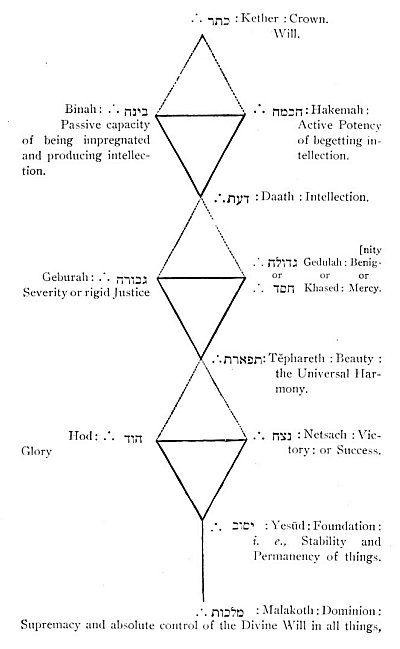There is a perennial nobleness and even sacredness in work. Be he never so benighted and forgetful of his high calling, there is
p. 342
always hope in a man who actually and earnestly works: in Idleness alone is there perpetual Despair. Man perfects himself by working. Jungles are cleared away. Fair seed-fields rise instead, and stately cities; and withal, the man himself first ceases to be a foul unwholesome jungle and desert thereby. Even in the meanest sort of labor, the whole soul of man is composed into a kind of real harmony, the moment he begins to work. Doubt, Desire, Sorrow, Remorse, Indignation, and even Despair shrink murmuring far off into their caves, whenever the man bends himself resolutely against his task. Labor is life. From the inmost heart of the worker rises his God-given Force, the Sacred Celestial Life-essence, breathed into him by Almighty God; and awakens him to all nobleness, as soon as work fitly begins. By it man learns Patience, Courage, Perseverance, Openness to light, readiness to own himself mistaken, resolution to do better and improve. Only by labor will man continually learn the virtues. There is no Religion in stagnation and inaction; but only in activity and exertion. There was the deepest truth in that saying of the old monks, “laborare est orare.” “He prayeth best who loveth best all things both great and small;” and can man love except by working earnestly to benefit that being whom he loves?
“Work; and therein have well-being,” is the oldest of Gospels; unpreached, inarticulate, but ineradicable, and enduring forever. To make Disorder, wherever found, an eternal enemy; to attack and subdue him, and make order of him, the subject not of Chaos, but of Intelligence and Divinity, and of ourselves; to attack ignorance, stupidity and brute-mindedness, wherever found, to smite it wisely and unweariedly, to rest not while we live and it lives, in the name of God, this is our duty as Masons; commanded us by the Highest God. Even He, with his unspoken voice, more awful than the thunders of Sinai, or the syllabled speech of the Hurricane, speaks to us. The Unborn Ages; the old Graves, with their long-moldering dust speak to us. The deep Death-Kingdoms, the Stars in their never-resting course, all Space and all Time, silently and continually admonish us that we too must work while it is called to-day. Labor, wide as the Earth, has its summit in Heaven. To toil, whether with the sweat of the brow, or of the brain or heart, is worship,–the noblest thing yet discovered beneath the Stars. Let the weary cease to think that labor is a curse and doom pronounced by Deity, Without it there could be no true
p. 343
excellence in human nature. Without it, and pain, and sorrow, where would be the human virtues? Where Patience, Perseverance, Submission, Energy, Endurance, Fortitude, Bravery, Disinterestedness, Self-Sacrifice, the noblest excellencies of the Soul?
Let him who toils complain not, nor feel humiliated! Let him look up, and see his fellow-workmen there, in God’s Eternity; they alone surviving there. Even in the weak human memory they long survive, as Saints, as Heroes, and as Gods: they alone survive, and people the unmeasured solitudes of Time.
To the primeval man, whatsoever good came, descended on him (as in mere fact, it ever does) direct from God; whatsoever duty lay visible for him, this a Supreme God had prescribed. For the primeval man, in whom dwelt Thought, this Universe was all a Temple, life everywhere a Worship.
Duty is with us ever; and evermore forbids us to be idle. To work with the hands or brain, according to our requirements and our capacities, to do that which lies before us to do, is more honorable than rank and title. Ploughers, spinners and builders, inventors, and men of science, poets, advocates, and writers, all stand upon one common level, and form one grand, innumerable host, marching ever onward since the beginning of the world: each entitled to our sympathy and respect, each a man and our brother.
It was well to give the earth to man as a dark mass, whereon to labor. It was well to provide rude and unsightly materials in the ore-bed and the forest, for him to fashion into splendor and beauty. It was well, not because of that splendor and beauty; but because the act creating them is better than the things themselves; because exertion is nobler than enjoyment; because the laborer is greater and more worthy of honor than the idler. Masonry stands up for the nobility of labor. It is Heaven’s great ordinance for human improvement. It has been broken down for ages; and Masonry desires to build it up again. It has been broken down, because men toil only because they must, submitting to it as, in some sort, a degrading necessity; and desiring nothing so much on earth as to escape from it. They fulfill the great law of labor in the letter, but break it in the spirit,: they fulfill it with the muscles, but break it with the mind.

Moe is the founder of GnosticWarrior.com. He is a father, husband, author, martial arts black belt, and an expert in Gnosticism, the occult, and esotericism.





